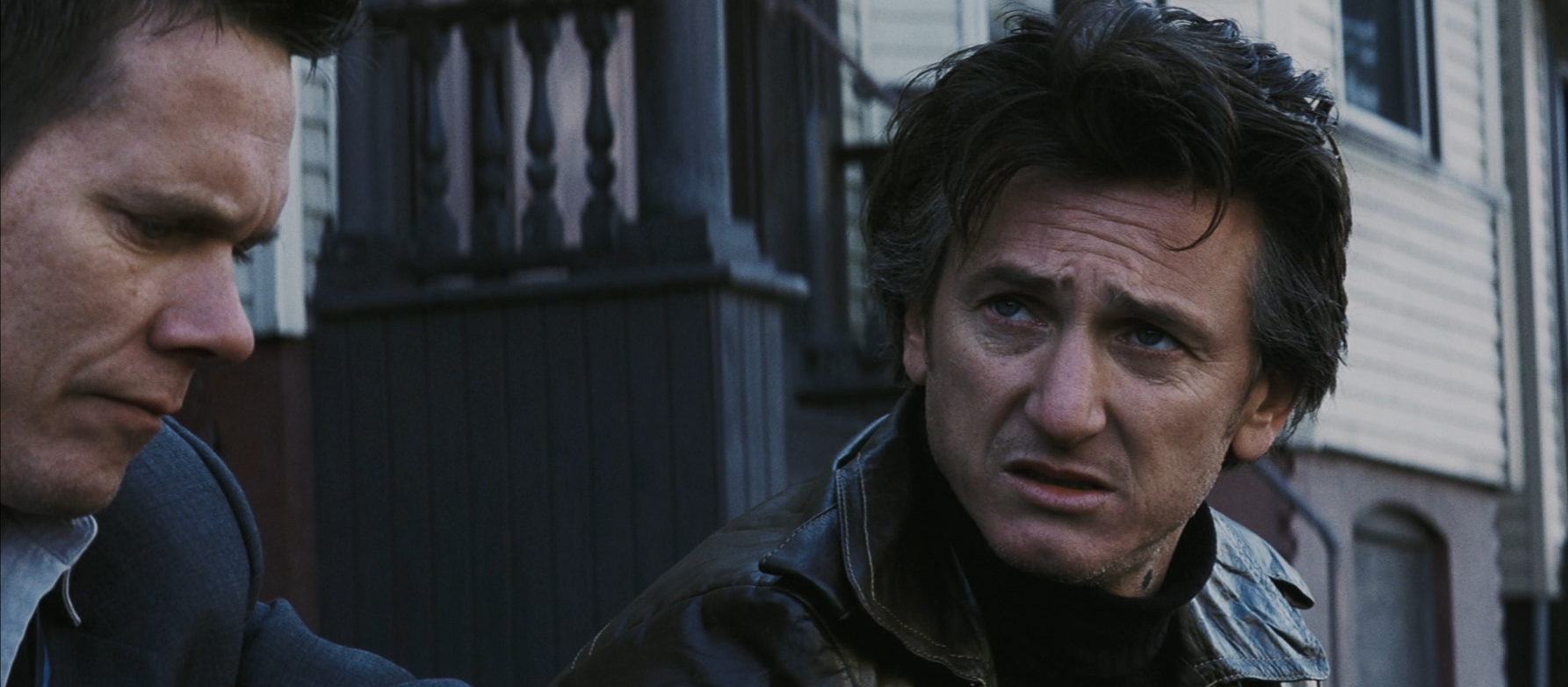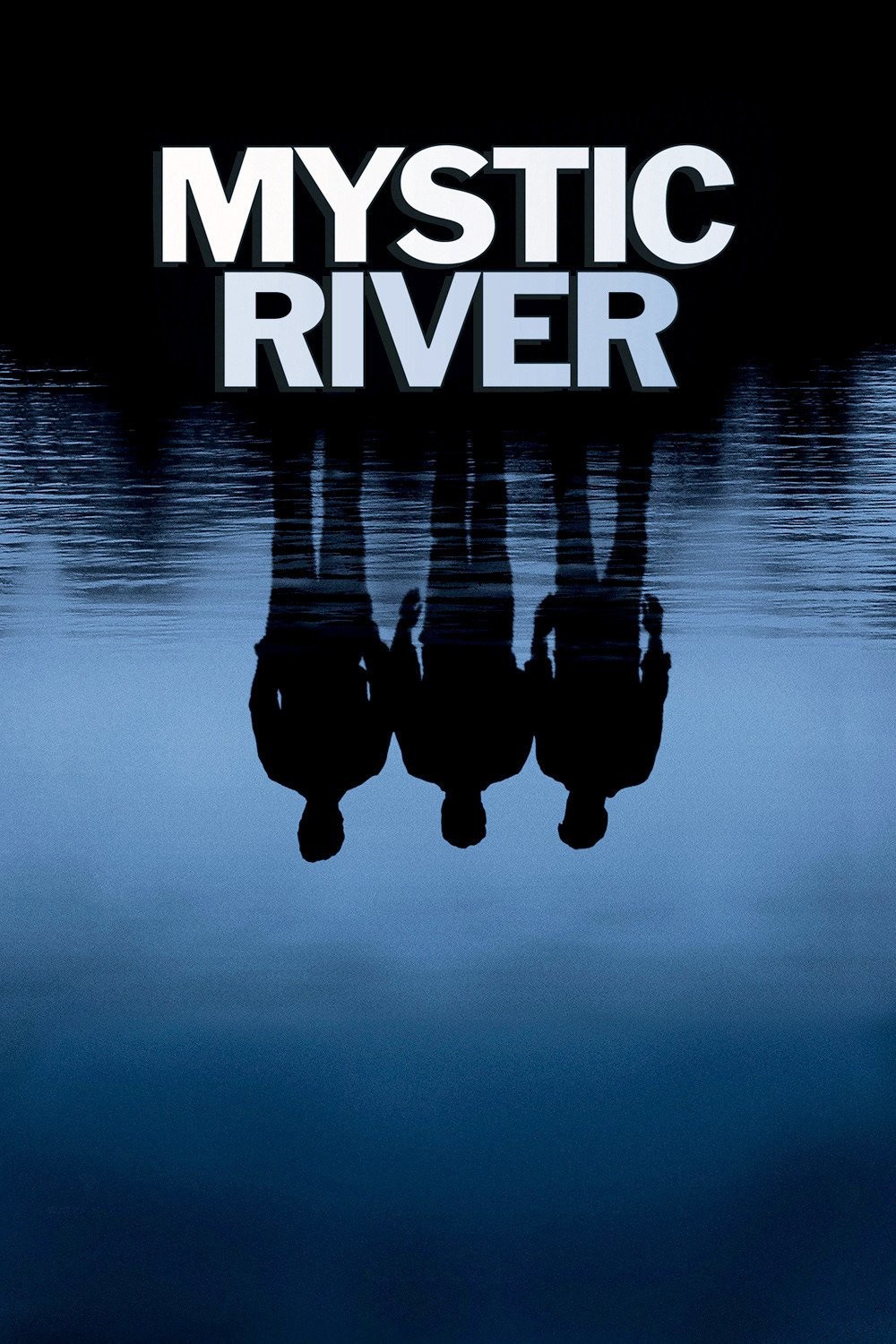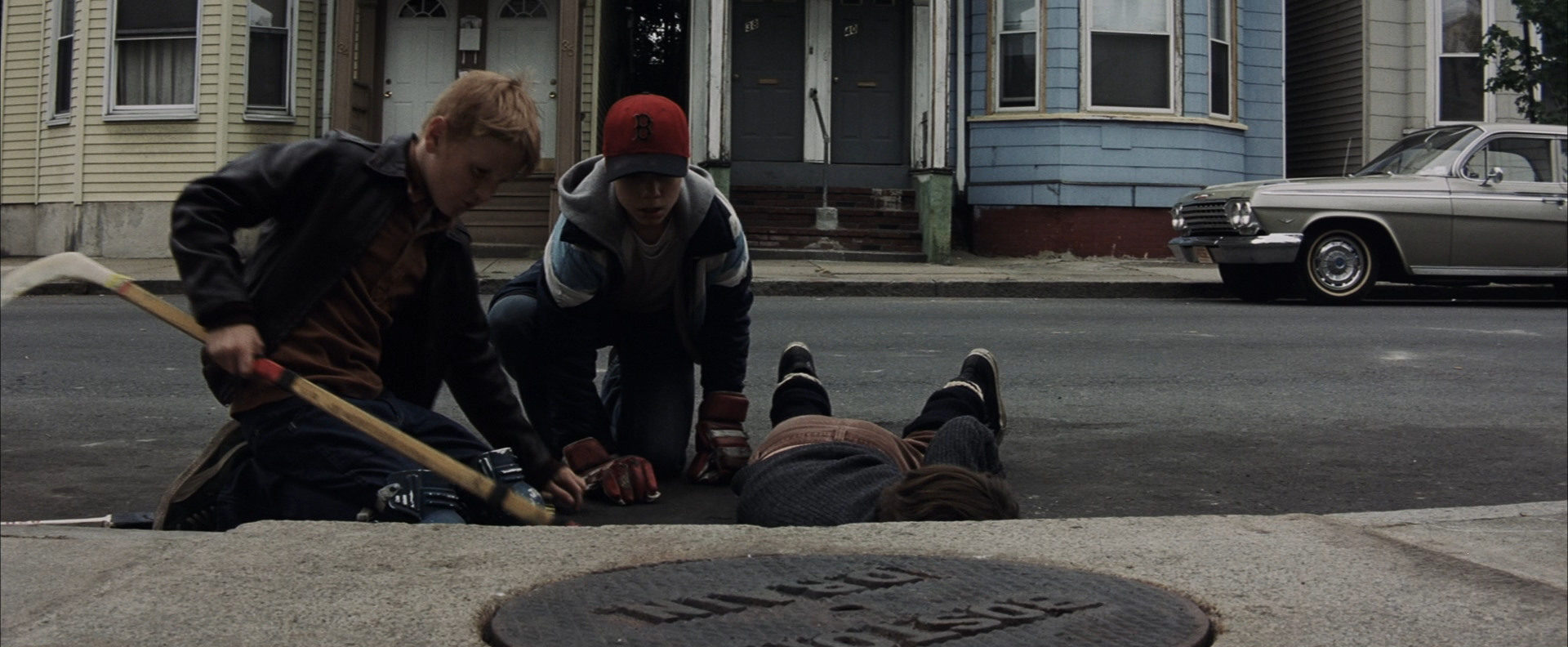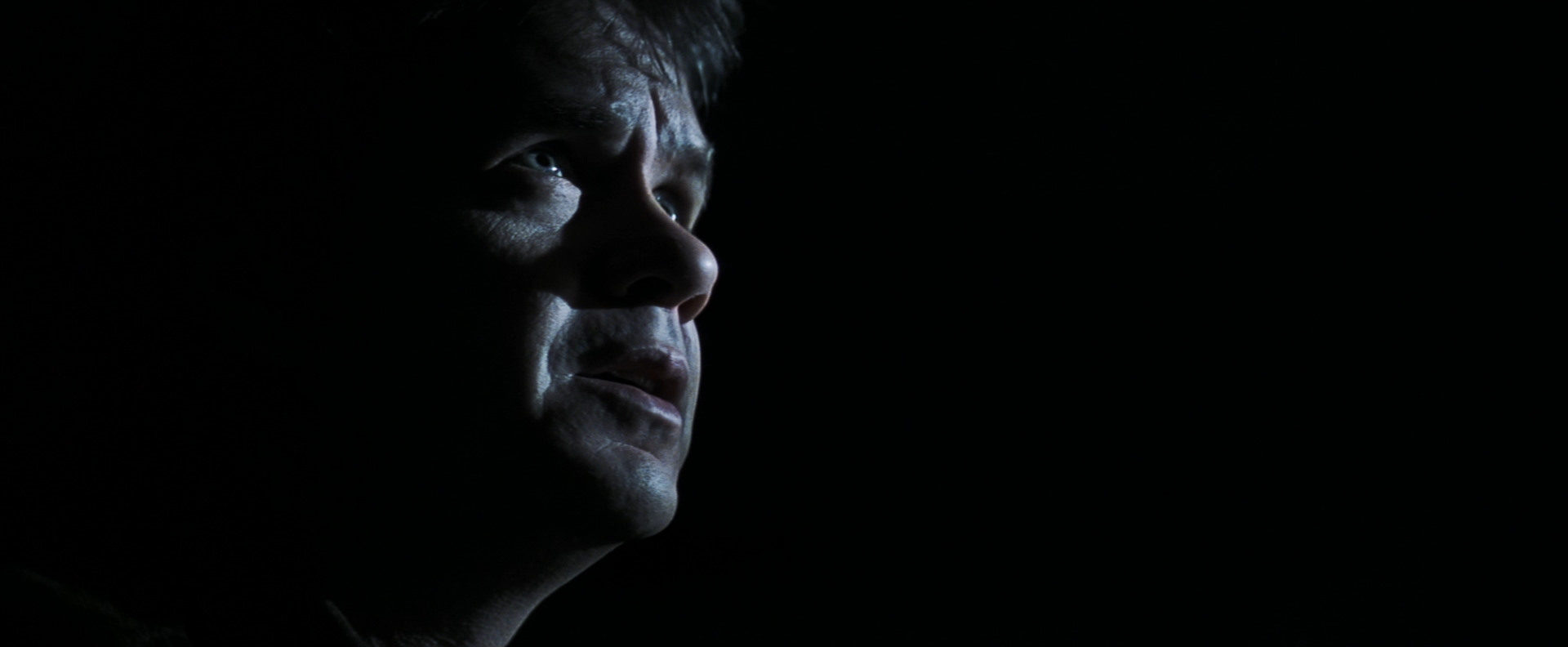

“We bury our sins here. We wash them clean.”
Usually my wife doesn’t even glance at my bookshelf when she’s looking for something to read. She mostly rejects my recommendations, but occasionally she’ll rummage through my collection and find one of those select few novels that exist within the thin sliver of overlapping taste. I don’t know what exactly caught her eye about Shutter Island, but once she devoured that it was Dennis Lehane’s name that encouraged her to pick up Mystic River. I thought Martin Scorsese’s adaptation of Shutter Island was decent. The source material has more depth of style than substance, and so it could only achieve so much, dramatically speaking. Mystic River is a different story though. From the opening scene, detailing a formative experience in the lives of three childhood friends, the film boldly explores its themes of ruined friendships, childhood trauma, and the process of mourning. It’s a much meatier story than that of Shutter Island, and so Clint Eastwood’s brooding neo-noir crime drama has much more inherent emotional tension. With a strong ensemble cast to clothe these conflicted characters in flesh and bone, Mystic River elevates the standard whodunit into an evocative rumination. It almost feels like a vintage Scorsese crime film, sans classic rock and Robert De Niro.
The film focuses on three friends—Jimmy Markum (Sean Penn), a reformed convict who runs a corner convenience store; Dave Boyle (Tim Robbins), a marginally employed oddball who suffers the worst of the ordeal in the opening sequence, permanently scarring his psyche; and Sean Devine (Kevin Bacon), a homicide detective. Our leading men carry things, but the film would lapse without strong performances in other prominent roles: Jimmy’s second wife, Annabeth (Laura Linney), mother of his second and third daughters, and stepmother to his eldest, whose murder serves as the story’s nexus; Dave’s wife, Celeste (Marcia Gay Harden), who is Jimmy’s cousin and the film’s most conflicted character, trapped between loyalty to her husband, allegiance to her extended family, and her own sense of right and wrong; and Whitey Powers (Laurence Fishburne), Sean’s detective partner.

When an anonymous call to the police leads to the discovery of Katie Markum’s (Emmy Rossum) body, Sean and Whitey are assigned to the case. The initial suspect is Brendan Harris (Tom Guiry), Katie’s secret boyfriend. The couple were planning on skipping town to get married in Vegas the day after she was murdered. But soon Dave becomes a suspect as well—he was at the same bar as Katie until late in the evening and returned home at 3am covered in someone else’s blood. Neither’s alibi is airtight. But Brendan’s is tighter, and he passes a polygraph; so Dave, who begins acting strangely and changes the story about his bruised hand three times, is framed as the likely culprit.
Where a lesser film would play out by a formula, feeding us a steady diet of minor clues to bring us closer and closer to the solving the murder until a slick reveal at the end, Mystic River chooses to plant its flag somewhere beyond that. It certainly does get us to the end of the line, discovering the guilty party and bringing them to justice—it doesn’t skimp on that front. But it is so much more than the underlying police procedural that frames it. It’s about multigenerational conflict, the ramifications of childhood trauma, familial loyalty, and moral grey areas. The latter theme is paramount, I think, because it weighs heavily upon you even after the film’s conclusion. There’s no tidy bow to wrap things up; when the film ends, we’re keenly aware that exactly none of the characters are “the good guy,” and none, save the child rapists who gave Dave his debilitating childhood wounds, are clearly “the bad guy.” Even Jimmy, who sics his cousins, the Savage brothers (Kevin Chapman, Adam Nelson, Robert Wahlberg) upon anyone and everyone who might know something about Katie’s murder, and who has a checkered past himself, is cast halfway between light and darkness.

Their daddy’s a king. And a king knows what to do and does it. Even when it’s hard. And their daddy will do whatever he has to for those he loves. And that’s all that matters. Because everyone is weak, Jimmy. Everyone but us. We will never be weak. And you, you could rule this town.
These turbulent moments of interpersonal tension give the cast the opportunity to really show off their chops. Sean Penn is simply magnificent in numerous scenes of emotional crisis, including being held back from the crime scene by a half dozen cops, finally allowing himself to weep for his daughter, and confronting his childhood friend Dave about Katie’s murder. Although Robbins’s Dave Boyle lacks the complexity of his literary counterpart, which makes his measured drawl and simple-minded speech a bit confusing at first, he instills the character with a brilliant balance between feeble and sinister; a weakling with fangs. In his interrogation scene, he flips the switch from clueless to sharp-witted, catching the detectives off guard. The police partners, too, are often at odds, each hunching on a different suspect and presenting every new clue to the other as if it is conclusive. And though she doesn’t feature prominently in the story, Celeste is brought to life in startling fashion by Marcia Gay Harden. She’s routinely called upon to exhibit uncertainty, doubt, confusion, frustration, worry; and she often does so as much with her mannerisms and facial expressions as with words. It’s simply a joy to watch acting this good.

Another element that bears mentioning is Brian Helgeland’s screenplay. Much of the dialogue is lifted from the book, but I was often in awe of how much narrative ground, character development, and exposition were covered in single lines. While I found the script to be delightful, I do think that Lehane’s story slightly suffers from contrivance. The slow build up of suspense gives us the notion that the harrowing episode from the boys’ childhood has made this brooding horror an inevitability; but the final resolution we are given on the crime makes it seem like an unfortunate coincidence, and the explanatory flashbacks are unneeded and vacuum up some of the residual mystery that might have lingered. But that only slightly mars an otherwise excellent film.
Mystic River achieves its aim of dark tragedy. The ideas of incurable trauma, vengeance, guilt, and violence, are emphasized without ever dipping into melodramatic pulp. Much credit belongs to Eastwood for keeping a tight ship (and writing the score), but the cast is what really makes the film. Penn’s overpowering performance is the film’s centerpiece, but the murder at the core of the story is a communal wound, not an individual one. The pervasive sense of tragedy affects every principal character, save perhaps Fishburne’s Whitey. This is one of Clint Eastwood’s finest directorial efforts.